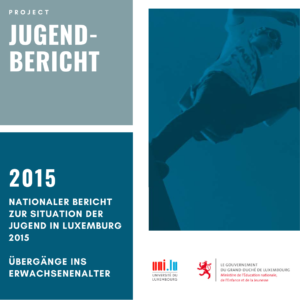The focus of the presentation is the specific situation of young people with disabilities during their transition period into adulthood.
Methods:
The presentation is based on 51 guideline-based qualitative interviews with adolescents and young adults with a disability. The study was conducted within the framework of the Luxembourg Youth Report 2015 (Willems, 2015).
Results:
The aspirations and ideas of young people with disabilities about being and becoming an adult are little different from those of their able-bodied peers. For them, too, being an adult primarily means financial, emotional and social independence and autonomy. Nevertheless, it is obvious that for them the transition to self-reliant, independent adult life is more difficult: only one in seven of those questioned had found their first job on the labour market and one in two were still living with their parents.
Conclusion:
Our conclusion is that for adolescents and young adults with a disability, the transition to adulthood presents a disproportionately tough challenge compared with their able-bodied peers. Sociological and psychological theories (Hurrelmann & Quenzel, 2012; Havighurst, 1972) consider the successful accomplishment of certain developmental tasks as a master challenge of youth. Young people with disabilities have to cope with the same developmental tasks as young people without disabilities. However, achieving them is much more difficult, not only because of their physical, mental or psychiatric impairment but also because of the lack of respect and the stigmatisation that they experience in daily life.
Perspectives and transition experiences of adolescents and young adults with disabilities
Zitiervorschlag
Weis, D. & Mousset, I. (2017). Perspectives and transition experiences of adolescents and young adults with disabilities. Better mental health for people with intellectual disability. EAMHID, University of Luxembourg (UL), & APEMH Foundation. EAMHID 2017: 11th European Congress Mental Health in Intellectual Disability, Luxembourg 2017, Luxembourg.



